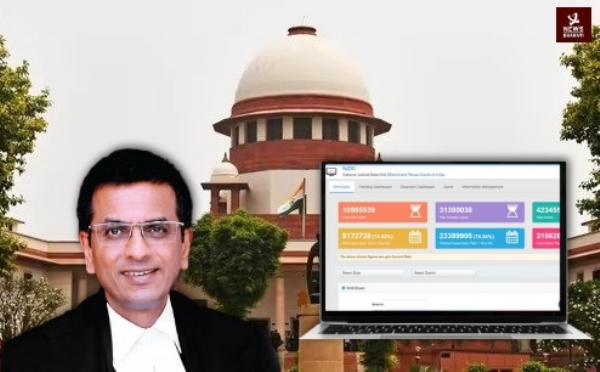NB Explains | SC's real-time data now a click away -- Here's all you need to know about National Judicial Data Grid
The entire database shall be periodically updated on the National Judicial Data Grid portal.
Total Views | 158
New Delhi, Sep 15: With the Supreme Court of India onboarding the National Judicial Data Grid (NJDG) portal, the flagship project of the e-Courts project completes the full circle, said an official release.

According to an official release by the Ministry of Law and Justice, "Now we have all three tiers of Indian judiciary on NJDG portal. National Judicial Data Grid is recDataognized as a significant innovation under the ease of doing business initiative of the Government of India." The NJDG portal is a national repository of data relating to cases instituted, pending and disposed of by the courts across the length and breadth of the country.
Now with a click of a button, one may access case-related information, statistics such as institution, pendency and disposal of cases, case types, and year-wise break-up of the Supreme Court of India, said the release. National Judicial Data Grid has been developed by the National Informatics Centre (NIC) in close coordination with the in-house software development team of the Computer Cell, Registry with an interactive interface and analytics dashboard. The entire database shall be periodically updated on the National Judicial Data Grid portal, it added. To date, the NJDG portal remains unparalleled, and the same is accessible at the click of a button to its citizenry.
Supreme Court of India takes a leap into the digital era as it oboards National Judicial Data Grid (NJDG). Hon’ble Dr. Justice D.Y. Chandrachud declares that the SC’s real-time information of cases will now be available on the National Judicial Data Grid, a database of orders,… pic.twitter.com/wZLAa1200G
— Ministry of Law and Justice (@MLJ_GoI) September 14, 2023
It further stated, "NJDG is sui generis as it has brought transparency, and accountability within the realm of the Indian judicial system by sharing all relevant data of cases instituted, pending and disposed of." The official release said, "Since the launch of the National Judicial Data Grid portal, the benefits of the National Judicial Data Grid portal can be summed up as increased transparency, accountability and responsibility, improved efficiency, increased coordination, informed decision-making, optimum deployment of resources and manpower single source of data and huge potential for high-quality research work."
Also read: Reservation Quota Agitation by Marathas
As is seen on the screen, for the year 2023 the total pendency of registered cases and unregistered cases is 64,854 and 15,490 respectively. Last month, the cases instituted and cases disposed of were 5,412 and 5,033 respectively, said the official release.
--
Bharati Web
Mes, Pune







